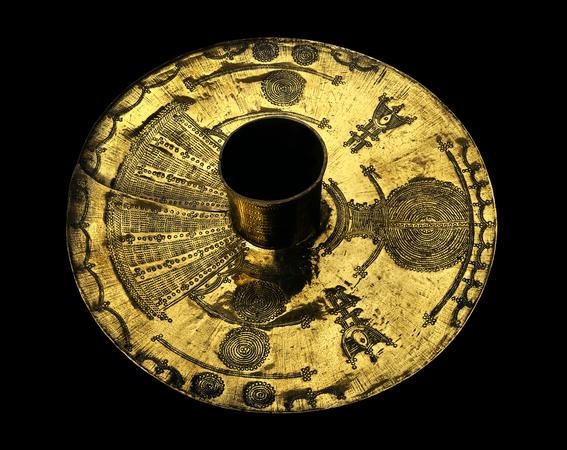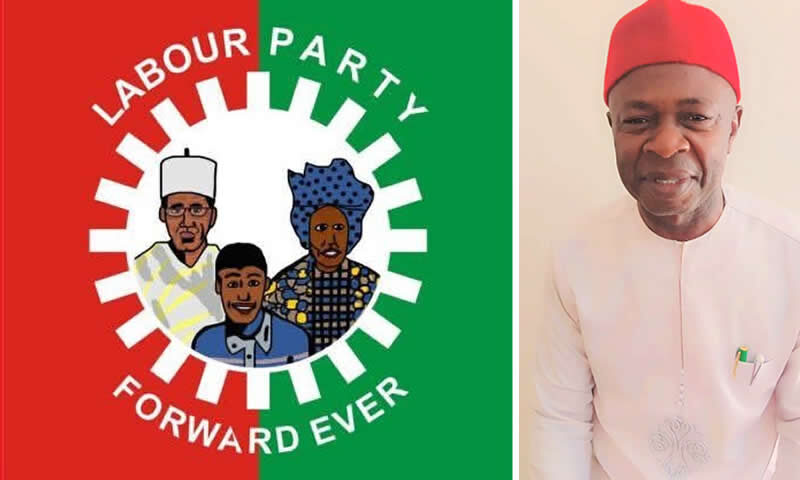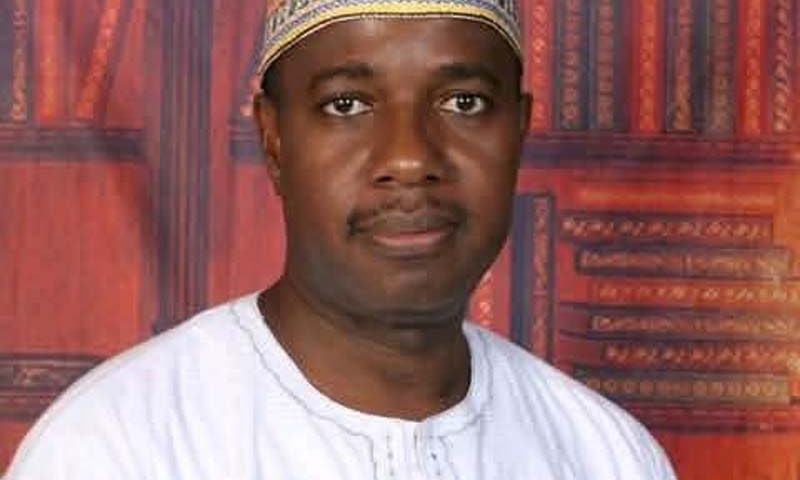The loss of her customs, rituals, highly valued artefacts and cultural pride of the indigenous people, became replaced by European value systems, ideas and traditions that created much of a deep dysfunctionality in the sovereign consciousness of these republican people.
Whilst Dr Henry Kissinger called them “the Wandering Jews of West Africa”, the late playwright China Achebe’s “Things Fall Apart” portrays Ndigbo as a community known for its cultural richness and which was destabilised by the advent of British colonialists and European Christian missionaries. The loss of her customs, rituals, highly valued artefacts and cultural pride of the indigenous people, became replaced by European value systems, ideas and traditions that created much of a deep dysfunctionality in the sovereign consciousness of these republican people. The eroding of their cultural unction was really impacted on, on the one hand by the loss of extremely valued artistic works of art, inclusive of the destruction of their “Omenala” value system after the Anglo-Aro War and even Ekumeku conflict/resistance which lasted for over 30years. Later within the context of Nigeria’s amalgamation of two British protectorates of North and South by 1960, there has remained a lacuna of perceived and realistic nationhood which seamlessly factors Ndigbo into a firm unity with other ethnic nationalities especially after the Nigeria civil war of 1967-70 and decades after the calculated renege for them to ascend to leadership In Nigeria and/or exsanguinatio of Ndigbo persists. This has led to the successor generation to seek a referendum within the framework of the UN’s Charter of self-determinism for all indigenous people globally. Similarly, Igbo artefacts expropriated by British colonial actions of mass destruction and pillage remains a revolving question yet to be answered, especially as regards the reparation and restitution of Igbo artefacts and artistic relics of culture. Just like art works stolen from Benin or Congo or Ghana, Igbo art works which are rarely ever discussed in the media need to be given a class action status of legal pursuit for their return to homeland.
The British museum website shows images of anklets and other stately artefacts of Igbo origin stolen many decades ago.
One of such examples is museum number Af1970,17.1, which carries a
description – “Brass anklet” cylindrical with a central flange, with geometric patterns stamped on
production, ethnic group
“Made by: Igbo”
The description goes on to say production place
“Made in: Nigeria
Africa: sub-Saharan Africa: Nigeria
Materials-brass,
Dimensions
Height: Height: 13.20 centimetres
Width: Width: 34.70 centimetres
Depth: Depth: 33 centimetres
Curator’s comments.
Register 1970:
Ibo. From the area north of Onitsha.” Many of these looted treasures have reaped vast sums of money for colonial capitalism at the expense of Ndigbo of South Eastern Nigeria just as all across Africa.
Recently Prime Minister of the State Of The African Diaspora (SOAD), His Excellency, Dr. Louis-GeorgesTin and yours truly started on a trajectory and quest to pursue the not usually discussed subject matter of decades long looted Igbo artefacts lying prostrate in the British/European Museum and possibly in private collections across the West. It has become an indefatigable imperative that such valuable treasures be returned to their origins just like Benin bronze artworks, so they can be united with the descendants of their makers.
The 21st of June, 2023, marked a statutory victory like no other for SOAD and partners over Sotheby’s France, as the auction house had organized for a sale of sacred artefacts, the most important being a “Fang” reliquary head from Gabon, dating back from the late 19th century and valued at £4million according experts. The SOAD Prime Minister
and CRAN, alongside relevant actors renowned for their involvement in restitution and cultural heritage issues, working with their strategic counsel Rodney Ekorezok, were mobilized for the purpose by the Association Collectif des Gabonais de l’Occitanie (C.G.O), the Association Diasp’Aura and the Conseil Représentatif des Cultes et Confréries Fang “ESSAP”.
Mr. Yannick Elydjah Meyo, President of Diasp’Aura, a Gabonese and Fang communications expert, was most readily available to read the text signed by the SOAD and the associations to the Sotheby’s management in the glare of the camera shutters. The message was made clear to the company’s executives, that “this relic is a sacred object used in our Biéri rites. It represents the ancestors, belongs to our community and cannot be put up for sale. It is therefore, at the very least, ill-gotten property. We urge Sotheby’s to suspend the sale, so that full light can be shed on the provenance of this cultural and cultic treasure. If the sale were to go ahead, Sotheby’s would potentially be complicit in colonial plundering and receiving stolen goods, and would not be able to invoke good faith in any legal action. The same would apply to the buyer, who would also risk losing his investment. Our lawyers and journalists are following the case with us.”
The prevention of such a sale, was at the heart of the strategy and it worked. The exertion of legal pressure on both Sotheby’s and potential buyers entrenched a new paradigm in the restriction and imposition of Africa’s right to artistique restitution amongst other blockades to blatant and sheer merchantalism of African cultural objects by Western corporate hubris. Even though Sotheby’s remained adamant to close a sale on the day, with the pressure exerted, no buyer was willing to take the risk of acquiring for several million euros an item that might soon have to be returned, if a court ruling to that effect were obtained. As a result, the relic could not be sold. Without a doubt Sotheby’s, had experienced a major blow as the jewel in the crown did not find a buyer on that day. For Sotheby’s, this amounted to not just an economic loss of proportions but also a loss in terms of image, given that it’s unblemished reputation as a supposedly “honourable” auction house had objectively been called into question, or do we say was tarnished to say the least.
For decades long, Igbo cultural relics like most bronze artworks have been subjected to an “artpatheid” of grave proportions. The theft of these sacred vestiges of Akebulan, have left a dire divide between the people and their ancestoral totems of identity, consciousness, worship and inate energy conservation. African works of art on showcase across various Western Museums have served as sieggles of the struggle to repossess art grossly expropriated under colonial expedition. It is alarming that over half a million of such objects and artefacts by expert accounts, which amount to ninety per cent of original crafts of African origin are illegally held in Europe.
It remained laughable that a group of museums who self identified as universal hubs for art declared that many stolen works had, over time, naturally become “part of the heritage of the nations which hosted them.” Private collectors as well as the auction houses are also driven by this same impetus.
The Benin’s Minister of Culture in 2018 described meaningful restitution as an unimaginable feat similar in “the reunification of North and South Korea.” in other word, the contending forces of communism and capitalism finding middle ground remains impalpable.
But in a shift of ideology not long ago the Smithsonian conceeded to transfer most of its thirty-nine Benin Bronze works to Nigeria, this same line was towed by Germany’s national museums and also Belgium, which keeps the world’s largest single collection of African art in the quietude of a palace near Brussels. They have committed to return colonial-era acquisitions to the Democratic Republic of Congo. The flurry to restitute artifacts to Africa has no doubt geopolitical influences within its context and is driven by social movements such as the currents of “Black Lives Matter” amongst others.
Also recently under Emmanuel Macron, France has repatriated dozens of major works of art to Senegal, Madagascar, and Benin, to which President Patrice Talon proclaimed that their arrival is the return of “our soul”. By getting Nigeria’s Ministry of Foreign Affairs, the World Igbo Congress (WIC) and/or royal fathers like the Obi of Onitsha working together to give the much needed official mandate to SOAD and partners to pursue and achieve return of Igbo art pieces, these objects can and will be restituted for the successor generation to revere and cherish for eons to come.






